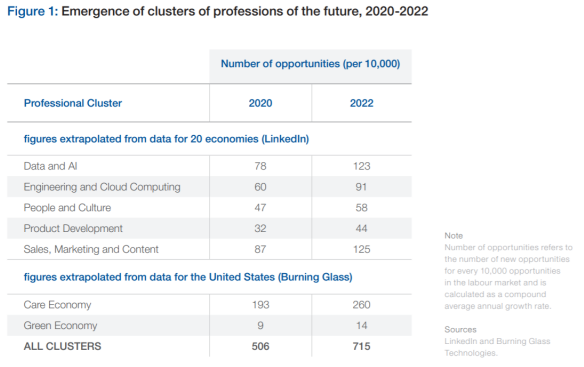It’s almost impossible to have a meaningful discussion, which centres around topics like the Fourth Industrial Revolution and digital disruption, without alluding to the impact on jobs caused by automation tools, robotics and artificial intelligence (AI).
Statistics provided by the World Economic Forum (WEF) will indicate that we need these deliberations. The labour market transformation brought about by the Fourth Industrial Revolution may lead to the creation of 133 million new jobs. However, it may also cause the simultaneous displacement of 75 million jobs over the 2018–2022 period, according to WEF’s 2018 ‘Future of Jobs Report’.
The same report does point out that out of this total ‘job churn’, the share of wholly new roles (that accounted for 16% of all jobs in 2018) will rise to 27% by 2022. Further, the report adds that this net positive job outlook will be concentrated in a set of newly emerging professional clusters.
Emerging clusters
The WEF has taken this analysis a step further with its January 2020 report, titled ‘Jobs of Tomorrow: Mapping Opportunity in the New Economy’.
The report notes that seven key professional clusters appear to be emerging in tandem. These clusters reflect the adoption of new technologies—giving rise to greater demand for green economy jobs, and roles that need data analytics, cover the AI economy, as well as new roles in engineering, cloud computing and product development.
Emerging professions also reflect the continuing importance of human interaction in the new economy, according to the report. These will give rise to greater demand for care economy jobs; roles in marketing, sales and content production; as well as roles at the forefront of people and culture.
Collectively, these professions are set to yield 6.1 million new job opportunities in the coming three years, according to the WEF report.

Conclusion
The seven professions of the future outlined in this report, and their corresponding skills needs, reflect the significant diversity of opportunity in the labour market, and offer opportunities for both high- and low-skilled employment. WEF argues that despite overwhelming public focus on disruptive technological skills, this report shows the diverse skill sets in demand in the future.
While disruptive technology skills such as data science and AI skills will certainly be critical to the future of work, so will caregiving, leadership, and the ability to provide learning and development. In other words, the transition to the new world of work will be both human- and tech-centric, the report concludes.
The analysis presented in the WEF report is based on metrics authored in partnership between the World Economic Forum’s New Metrics CoLab initiative and data scientists at three partner companies: Burning Glass Technologies, Coursera, and LinkedIn. You can read the full report here.
